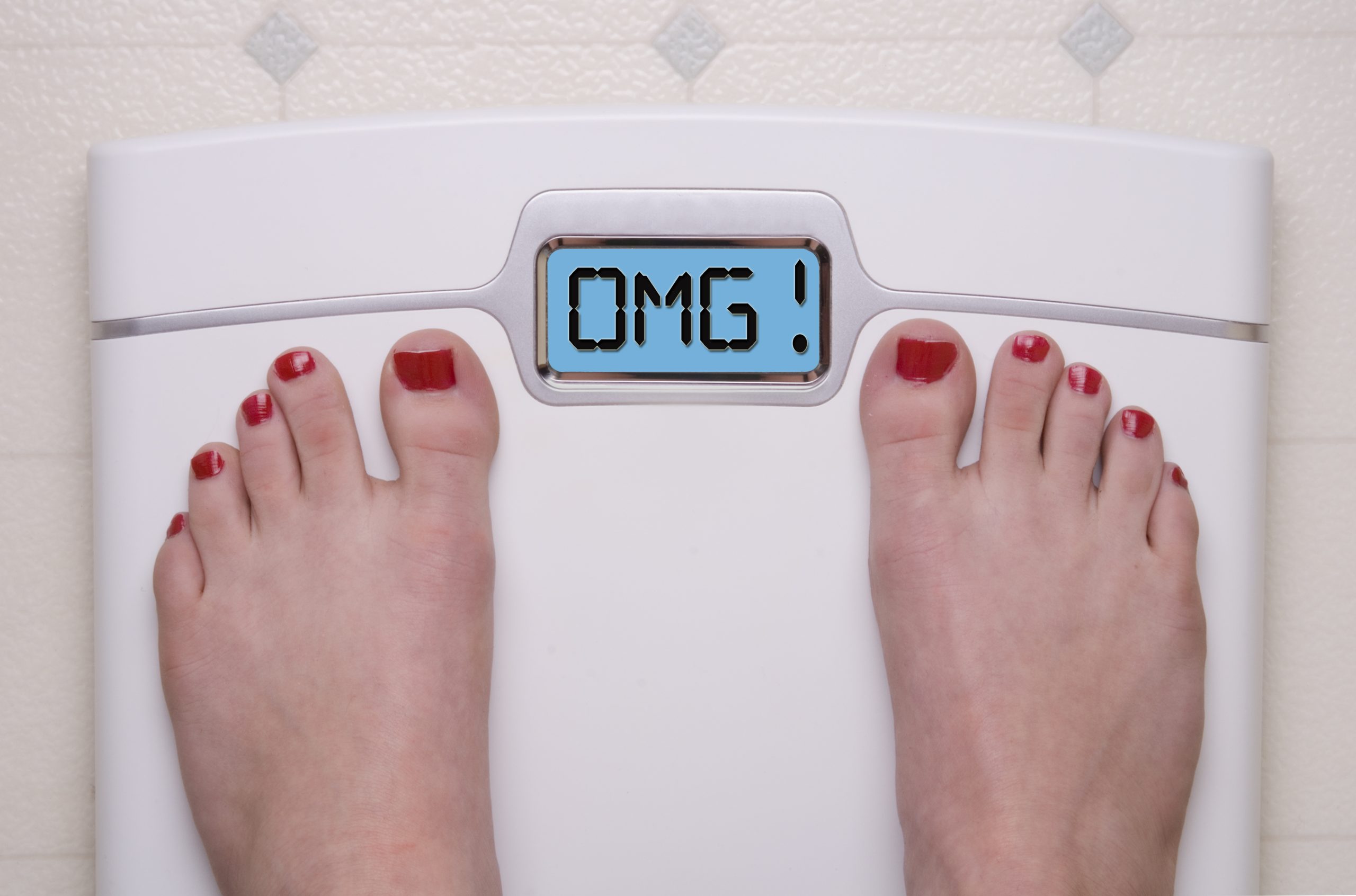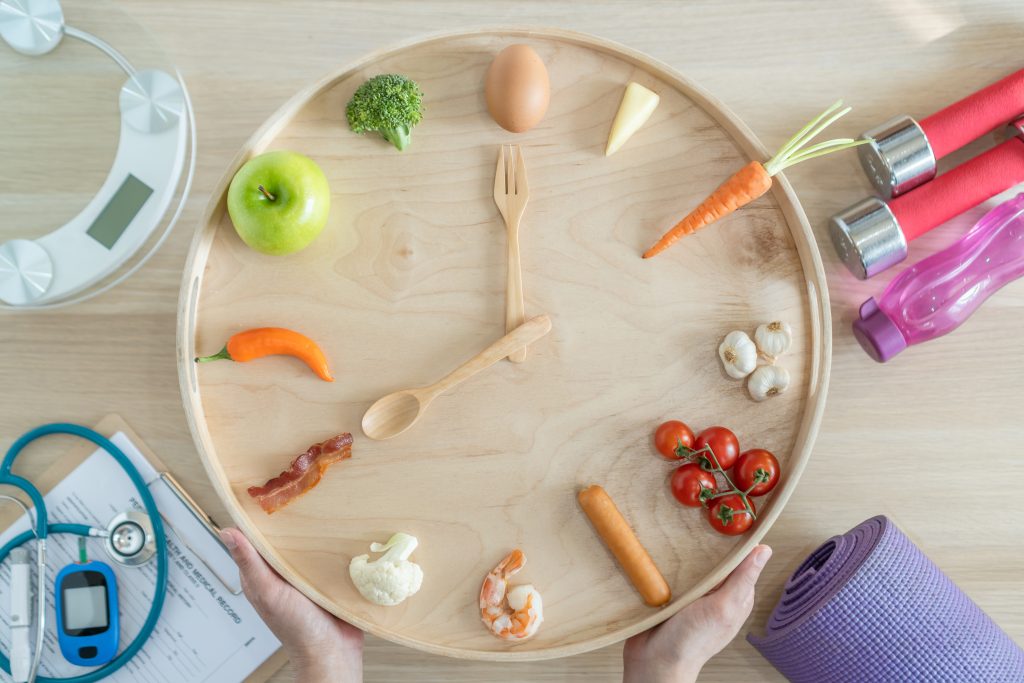There are a variety of reasons why your metabolism is slow but we’ve rounded up the most common reasons some of which you may already know about but there are some that you have probably not taken into consideration and might help you or someone you know on their journey to weight loss and better health.
Age Slows Metabolism
As we age there is a decrease in growth hormone. But there are things that you can do to increase this hormone. One of the most powerful things is fasting and when fast you have the potential to increase growth hormone by 2000%. The second most powerful thing that can increase growth hormone is exercise. But it has to be intense, as in short bursts of high intensity with lots of rest like high intensity interval training.
Menopause
If you’re female and you’re over age 50, the body goes through changes and the ovaries go into retirement. The adrenal glands act as a backup and what happens is you get a spike in cortisol. Many women going through menopause experience many negative effects because of this elevated level of cortisol. So, it’s very important to take care of the adrenals right before you go through menopause and also during and after.
History of Pregnancies
Going through a pregnancy not only creates a lot of trauma on a female body but it raises estrogen and estrogen causes the production of fat. If you want to help regulate estrogen, you want to consume things like cruciferous vegetables. You also want to avoid things that increase estrogen like dairy, flax seeds, and soy because they can increase estrogen.
History of Dieting
If you have a history of dieting it is harder to lose weight down the road because there is an adaptation by the body to slow down metabolism. So, dieting incorrectly, especially when you’re cutting calories and you’re keeping your carbs high is not beneficial. Keeping your calories filled with nutrients and just eating less frequently such as in intermittent fasting, not cutting calories is the best approach. A low-fat diet is not beneficial because you need that fat to support the endocrine system.
History of High Carb Diets
High carb diets generate insulin resistance which will result in a high level of insulin. A high insulin level will completely block your ability to lose weight.
Chronic stress
Chronic stress is equivalent to consuming sugar because it turns things in your body to glucose.
Hypothyroidism
90% of hypothyroidism is Hashimoto’s disease which is more closely related to the immune system. It’s not really a thyroid problem its an immune system issue usually caused by some issues in the gut. So, if you have Hashimoto’s, you should definitely be on a probiotic, selenium which is a powerful antioxidant and vitamin D to decrease inflammation. The other versions of hypothyroidism involve having a problem with too much estrogen because as you increase estrogen the thyroid shuts down. Also 80% of the thyroid hormone T4 gets converted to T3 the active form through the liver with the help of bile. So, if you don’t have a gallbladder or if you have a fatty liver where you’re not making enough bile you need to start taking bile salts that will help you convert T4 to T3.
Fatty liver
We just mentioned that the liver helps convert T4 to T3, but a fatty liver can definitely slow down the ability to lose weight. If the liver is fatty, you’re not going to have the ability to regulate certain levels of cortisol, estrogen, insulin and growth hormones. Choline is recommended as well as doing a healthy keto plan and doing fasting because this can reverse fatty liver.
Obesity
One of the problems with obesity is that the more fat you have the more estrogen you’re going to make and as mentioned before, estrogen can make it difficult to lose weight. So, overtime as you lose more fat it will be easier to lose weight because you don’t have that estrogen that’s countering your ability to lose weight. One thing to remember is that here are three hormones- cortisol estrogen and insulin that could block the seven fat burning hormones.
Snacking
Frequent eating is the biggest killer to your metabolism because every time you eat you stimulate insulin.
Regular consumption of alcohol
When you consume a little wine here in there unfortunately that wine not only has carbohydrates, but it can really block the liver’s ability to help you tap into burning fat and developing ketones. So, let’s say you have a glass of wine tonight, you won’t burn fat for 48 hours. If you drink more wine, it could go up to 72 hours. If you’re doing this every other day or every third day, it could be the reason why you’re not losing weight.
Early childhood infections
This relates to people who said they were always overweight. If you ask them “what about when you’re two years old?” they might say “I was skinny”. Then the question is “at what age did you start gaining weight?” Many times, the answer includes after an early childhood infection such as a sinus infection, asthma or some type of problem that involves taking a drug- antibiotics, inhalers or some type of medication that somehow influenced your metabolism. So, it’s interesting to note that an alteration in metabolism very early on has some connections with early weight gain.
Medications
A lot of people are on medications, and this is not a suggestion to go off medications but perhaps you want to have a discussion with your doctor to come up with a solution so the dependency on medication lessened. Prednisone, steroids, anti-anxiety, anti-depressive medication and antibiotics all will increase weight and can slow your metabolism down.
As a retired registered massage therapist, I’ve always been interested in health. I grew up loving sports so that carried into my adult life in my chosen career paths and in my personal life. I now stay active with weight training, hiking and biking. My professional life has always been in health care. This has inspired me to seek out and adopt a life of natural health and wellness.



